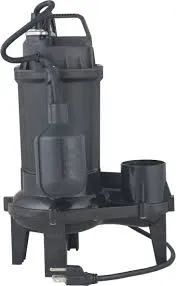Swahili
- Afrikaans
- Albanian
- Amharic
- Arabic
- Armenian
- Azerbaijani
- Basque
- Belarusian
- Bengali
- Bosnian
- Bulgarian
- Catalan
- Cebuano
- Corsican
- Croatian
- Czech
- Danish
- Dutch
- English
- Esperanto
- Estonian
- Finnish
- French
- Frisian
- Galician
- Georgian
- German
- Greek
- Gujarati
- Haitian Creole
- hausa
- hawaiian
- Hebrew
- Hindi
- Miao
- Hungarian
- Icelandic
- igbo
- Indonesian
- irish
- Italian
- Japanese
- Javanese
- Kannada
- kazakh
- Khmer
- Rwandese
- Korean
- Kurdish
- Kyrgyz
- Lao
- Latin
- Latvian
- Lithuanian
- Luxembourgish
- Macedonian
- Malgashi
- Malay
- Malayalam
- Maltese
- Maori
- Marathi
- Mongolian
- Myanmar
- Nepali
- Norwegian
- Norwegian
- Occitan
- Pashto
- Persian
- Polish
- Portuguese
- Punjabi
- Romanian
- Russian
- Samoan
- Scottish Gaelic
- Serbian
- Sesotho
- Shona
- Sindhi
- Sinhala
- Slovak
- Slovenian
- Somali
- Spanish
- Sundanese
- Swahili
- Swedish
- Tagalog
- Tajik
- Tamil
- Tatar
- Telugu
- Thai
- Turkish
- Turkmen
- Ukrainian
- Urdu
- Uighur
- Uzbek
- Vietnamese
- Welsh
- Bantu
- Yiddish
- Yoruba
- Zulu
Telephone: +86 13120555503
Email: frank@cypump.com
Desemba . 06, 2024 04:20 Back to list
split case pumps
Understanding Split Case Pumps A Comprehensive Overview
Split case pumps are an essential component in a variety of industrial applications, known for their efficiency and reliability. These horizontal centrifugal pumps are designed to handle large volumes of fluids, making them crucial for water supply, irrigation, firefighting, and other demanding operations. This article aims to provide an in-depth understanding of split case pumps, their construction, operation, benefits, and applications.
Construction of Split Case Pumps
The term 'split case' refers to the pump's casing design, which is made up of two halves that can be easily separated for maintenance. This innovative construction allows for straightforward access to internal components, including the impeller and shaft, without the need to remove the entire pump from the system. The split casing is typically mounted on a horizontal base, providing stability and ease of installation.
Inside the pump, the impeller plays a critical role in moving the fluid. The design of the impeller can vary depending on the specific application, but it generally consists of curved blades that efficiently convert mechanical energy into kinetic energy, increasing fluid velocity and pressure.
Additionally, split case pumps are equipped with a mechanical seal to prevent leaks, along with bearings that support the rotating shaft. The design also often includes a volute to guide the fluid as it exits the pump, enhancing efficiency further.
How Split Case Pumps Operate
The operation of a split case pump is relatively straightforward. When powered, the motor drives the impeller, creating a pressure difference that draws fluid into the suction inlet. As the impeller spins, it accelerates the fluid outward, forcing it into the discharge pipe. The centrifugal force generated by the impeller is responsible for overcoming the resistance of the system, allowing the fluid to be transported to its desired location.
split case pumps

The pump operates most efficiently at its Best Efficiency Point (BEP), which is the flow rate at which the pump achieves peak efficiency. To ensure optimal performance, it's essential to monitor operational parameters such as flow rate, pressure, and temperature, as deviations can lead to issues like cavitation or reduced lifespan.
Benefits of Split Case Pumps
One of the most significant advantages of split case pumps is their high efficiency. They are designed for continuous operation and can handle high flow rates with minimal energy consumption. Additionally, the ease of maintenance due to their split casing design minimizes downtime and reduces overall operational costs.
Furthermore, split case pumps are versatile. They can handle a variety of fluids, including clean water, seawater, and some chemical solutions, depending on the materials used in their construction. This flexibility makes them suitable for a wide range of industries, from municipal water systems to agricultural and industrial applications.
Applications of Split Case Pumps
Split case pumps are predominantly used in applications that require the transportation of large quantities of liquids. Common applications include
1. Water Supply Municipal water systems rely on split case pumps for reliable water distribution. 2. Firefighting These pumps are often used in fire protection systems due to their ability to deliver high volumes of water quickly. 3. Irrigation Farmers use split case pumps to efficiently irrigate large fields, ensuring crops receive adequate water. 4. Industrial Processes Many factories and plants utilize these pumps for various processes involving liquid transport.
In conclusion, split case pumps are a vital part of many industries, offering reliability and efficiency in fluid movement. Their robust design, ease of maintenance, and versatility make them a preferred choice for handling large volumes of liquids across various applications. Understanding their operation and benefits can significantly enhance their application in practice, ensuring optimal performance and longevity. Whether in municipal water supply or industrial processing, the importance of split case pumps cannot be overstated.
-
pipeline pump - Chi Yuan Pumps Co., LTD.|High Efficiency&Low Noise
NewsJul.31,2025
-
ISG Series Vertical Pipeline Pump - Chi Yuan Pumps Co., LTD.|High Efficiency, Energy Saving, Low Noise
NewsJul.30,2025
-
ISG Series Vertical Pipeline Pump- Chi Yuan Pumps|High Efficiency&Low Noise
NewsJul.30,2025
-
ISG Series Vertical Pipeline Pump-Chi Yuan Pumps Co., LTD.|High Efficiency&Energy Conservation
NewsJul.30,2025
-
ISG Series Vertical Pipeline Pump - Chi Yuan Pumps Co., LTD.|Advanced Hydraulic Design&Energy-Efficient Solutions
NewsJul.30,2025
-
ISG Series Vertical Pipeline Pump - Chi Yuan Pumps Co., LTD.
NewsJul.30,2025










